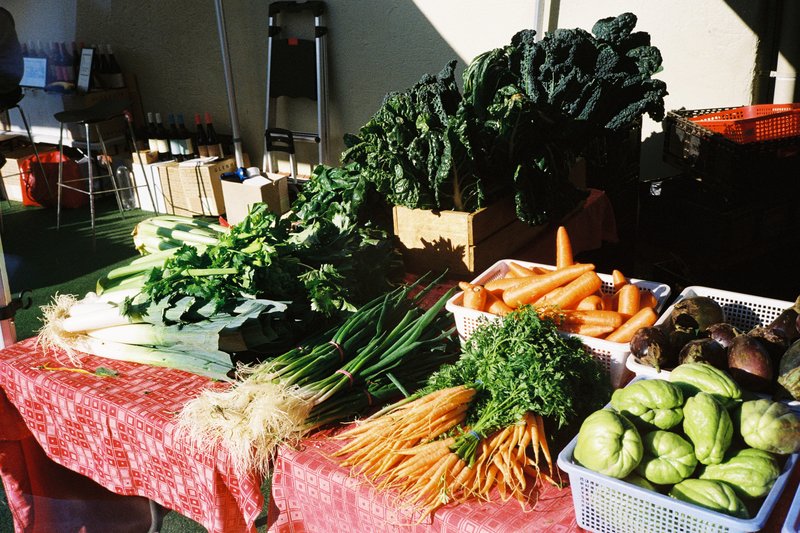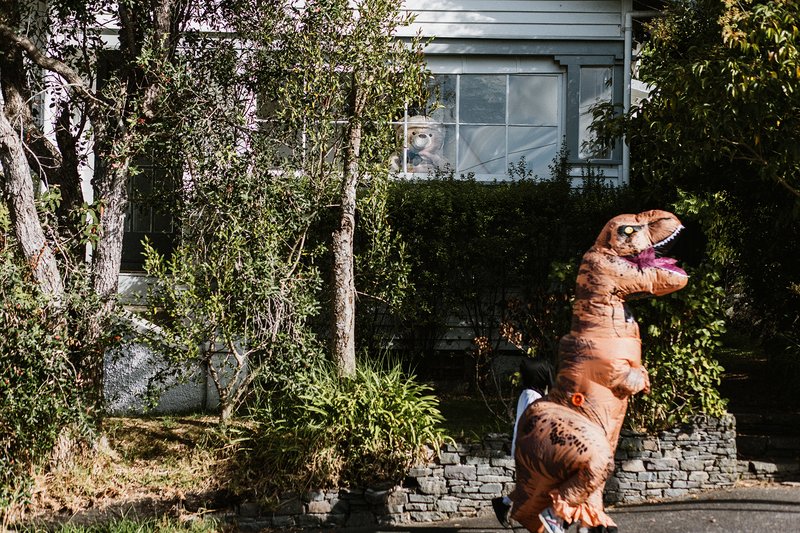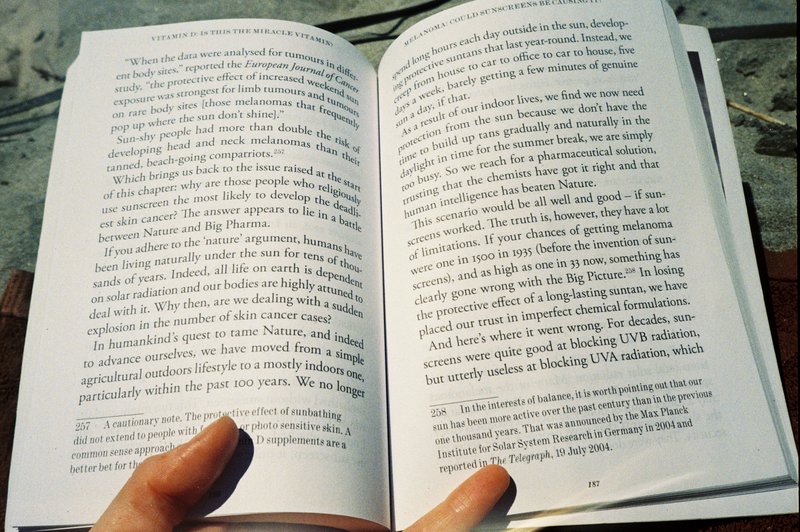People are increasingly priced out of big cities, and it is becoming harder to thrive in urban environments. So what does it mean to leave city life behind? Or to pursue alternative ways of living and working within the city? The pandemic promoted, overseas at least, a desire to move to remote areas, consider climate change impacts, moving away from metropolitan constraints and the consumerist mindset that comes with it. In part, it requires a reimagining of what it means to lead a successful life, to be successful. And while this represents unique challenges, what opportunities could exist for thriving outside our gentrified environments?
What was originally a list of four is now overgrowing as we discover and read new books. These are our recommended readings for city quitting or at least contemplation. And for those who will always find themselves in cities, use these books to guide projects within your urban boundaries and reimagine your city anew.

RetroSuburbia: The Downshifter's Guide to a Resilient Future — David Holmgren
Recommended by: Amandine
Why you’ll want to read it:
Retrosuburbia condenses over 30 years of permaculture thinking, spread over 500 pages. A study for living well with the land and other human beings, this book will help you to downsize, live sustainably, and simply in a suburban environment. Filled with practical tips, this biblical handbook is the one you will keep forever—the reference to come back to every time you encounter a problem on your path to achieve resilience. For those who want to create change within their residential neighbourhood.
What stuck with me:
Sharp illustrations, clear, aesthetically pleasing.
Available from:
— RetroSuburbia website
Grown & Gathered: Traditional Living Made Modern — Lentil and Matt Purbrick
Recommended by: Tracey
Why you’ll want to read it:
Grown and Gathered is the labour of love of Matt and Lentils Pubrick’s, a couple living now between Australia and Italy. Here they compiled their personal experiences of returning to Nature and the lessons acquired from developing their farm. These pages are about the reward of cultivating, harvesting, making, eating and trading your own—and the resulting happiness. Highly practical, this guide is the living exemple that becoming (nearly) self-sufficient is not only achievable but beautifully exciting. For those who wish to part ways with urban living.
What stuck with me:
The Kimchi and Passata recipes
Available from:
— Online
Te Mahi Māra Hua Parakore: A Māori Food Sovereignty Handbook — Dr. Jessica Hutchings
Recommended by: Amandine
Why you’ll want to read it:
A guide to dive into Māori Food Sovereignty politics, to understand Hua Parakore, to read about practitioners connecting with ancestral farming approaches, and tips and advice to grow your own kai food. For anyone who wants to rebuild Aotearoa (or their local) food sovereignty from the ground up.
What stuck with me:
We have so much to learn from Indigenous wealth of knowledge.
Available from:
— Papawhakaritorito Charitable Trust website store
Rise and Resist — Clare Press
Recommended by: Amandine
Why you’ll want to read it:
Clare Press’ second book, published in 2018, is an engaging compilation of the forms of activism, a dive into the creative strategies put together by people across the globe to build movements and push for changes. For those who want to do more than marches and community rallies.
What stuck with me: The many ways to have an impact on this world.
Available from:
— Online
21 Lessons for the 21st Century — Yuval Noah Harari
Recommended by: The Internet
Why you’ll want to read it:
Yuval Noah Harari's third iteration on the human condition explores what it means to be human in the present, a problematic moment led by confusion and perplexity, including advice on preparing for a different future. For those who want to understand where humanity truly stands technologically and politically.
What stuck with me:
The debunking of modern myths and other "post-truth" ideas.
Available from:
— Online
The Abundant Garden — Niva Kay and Yotam Kay
Recommended by: Amandine
Why you’ll want to read it:
The Abundant Garden is the first book published by Niva and Yotam Kay, permaculture farmers living in Aotearoa, New Zealand. The couple showcases and explains the techniques they learned and developed to cultivate their small-scale, regenerative, organic market garden and how to apply them to home gardening. For those who dream of growing proper food in their garden and be part of the food revolution.
What stuck with me:
The hyper-practicality and wealth of knowledge reflected in the book. Beautiful illustrations.
Available from:
— Online
The Good Dirt — Xanthe White
Recommended by: Amandine
Why you’ll want to read it:
I discovered landscape designer Xanthe White at an event organised by my permaculture social club. She was part of a conversation panel on Regenerating with the Whenua. Her book is about improving your garden condition through soil health, including soil type analysis, advice, an ingredients guide and various design ideas to enhance soil fertility and yield. For those who need to improve their garden situation.
What stuck with me:
The beautiful, inspiring images of White’s work.
Available from:
— Online
The Future We Choose: Surviving the Climate Crisis — Christiana Figueres and Tom Rivett-Carnac
Recommended by: The Internet
Why you’ll want to read it:
There are days when we wonder where we are heading with the new climate order. Written by two US negotiation leaders on the 2015 Paris Agreement, The Future We Choose is about optimism and envisioning life under and above 1.5℃ global temperature. For those in search of direction and perspective, particularly on gloomy days.
What stuck with me:
The author’s concrete action plan for a brighter future.
Available from:
— Online
21 Stories of Transition — The Transition Network
Recommended by: Amandine
Why you’ll want to read it:
An ebook initially put together in 2015 by Rob Hopkin's Transition Network for the Paris COP21, "21 Stories of Transition: how a movement of communities is coming together to reimagine and rebuild our world" is a compilation of community stories proving that transitions are possible, that people can change how they live, for the benefit of their environment and themselves. The future is here and has been for a long time. For those who need concrete examples of transition.
What stuck with me:
The incredible creativity of people with a will to achieve change.
Available from:
Happy City: Transforming Our Lives Through Urban Design — Charles Montgomery
Recommended by: Amandine
Why you’ll want to read it:
Charles Montgomery's book provides answers for those stuck living in cities and seeking climate resilience. Through his worldwide exploration of the world's most dynamic cities, the award-winning journalist compiles examples and explanations, building a tool "for understanding and improving our own communities" and cities, demonstrating how "the happy city, the green city, and the low-carbon city" are all the same. For those who want to have an impact within their urban environment.
What stuck with me:
There are many successful city reforms all over the world where well-thought-out urban environments can positively impact our happiness.
Available from:
— Online
Eurotopia Living in Community: Directory of Communities and Ecovillages in Europe — Michael Würfel
Recommended by: The Internet
Why you’ll want to read it:
Published in 2013, Eurotopia Living in Community is, as its title suggests, a directory for intentional communities in Europe. The book describes in detail more than six hundred places where people gathered to live differently. From decision-making to settlements, the compilation provides an array of living inspirations. "Sustainability starts with people getting along with each other. Intentional communities are seeds for a culture of tolerance and understanding." There is also a website where you can check out the latest version of the book and online news. For those who want to know what is happening abroad from the comfort of their home.
What stuck with me:
More than 600 alternative communities.
Available from:
— Online
How to Live in a Chaotic Climate — Laura Schmidt & co
Recommended by: Amandine
Why you’ll want to read it:
One of the most daunting aspects of climate change is that we don't fully comprehend where humanity is heading; we only have access to glimpses of it, which is stressful. How to Live in a Chaotic Climate: 10 Steps to Reconnect with Ourselves, Our Communities, and Our Planet by group of authors Laura Schmidt, Aimee Lewis Reau and Chelsie Rivera from the Good Grief Network, is a holistic guide to managing the feelings resulting from the climate crisis, unpacking "the social, political and spiritual nuances of the climate emergency". For those who need resources to help them deal with those emotions, with eco-anxiety.
What stuck with me: The ten-step guide towards resilience and empowerment.
Available from:
— Online
Mon petit potager bio sur 15m² — Arthur Motté
Recommended by: Amandine
Why you’ll want to read it:
At the age of 15, Arthur created an organic garden after the passing of his long-term friend Alphonse, an elderly from his hometown who triggered his passion for gardening. Following permaculture principles, Arthur gave life to a lush, abundant 15 m2 vegetable garden through experimentation, consistency, and creativity. A refuge for biodiversity, Arthur’s bountiful garden could be yours! In his book, he shared with kindness everything he learned, tips and tricks to prepare the soil, sowing, and successfully growing vegetables across seasons while protecting and enhancing your local fauna, essential for a healthy garden. Joyful, this is an indispensable guide that will blow away your fear of growing vegetables and get you to do the work. For those with restricted living environments who want to grow their food in small plots and don’t know where to start.
What stuck with me:
After Alphonse passed away, Arthur wanted to cultivate his garden to preserve his heritage and battle climate change effects.
Available from:
— Online

Everything we create is an effort to participate in a culture shift. All products featured are independently selected and curated by the authors, and we only feature items we use or would use ourselves that align with our values. As part of our business model, we do work with affiliates such as Amazon. As an Amazon Associate, we earn from qualifying purchases if you decide to purchase through our links. The price would be the same to you either way, but if you find value in our work, then these affiliate links are a way to support it. We only recommend brands, makers and products we use — that we support. Transparency is important to us, so if you have any questions, please reach out to us.



